On 27th January, three French beauties, Elodie Koyama, Marie Roux and Cindy Tourt, held a meeting for tea lovers to enjoy Japanese tea in French style.
They are French business persons involved in tea business in Shizuoka. Elodie works as a teacher of French language in the prefectural collage, Marie had worked in the Maruzen Tea Roastery and Cindy works in Maruyama Tea Products Company.
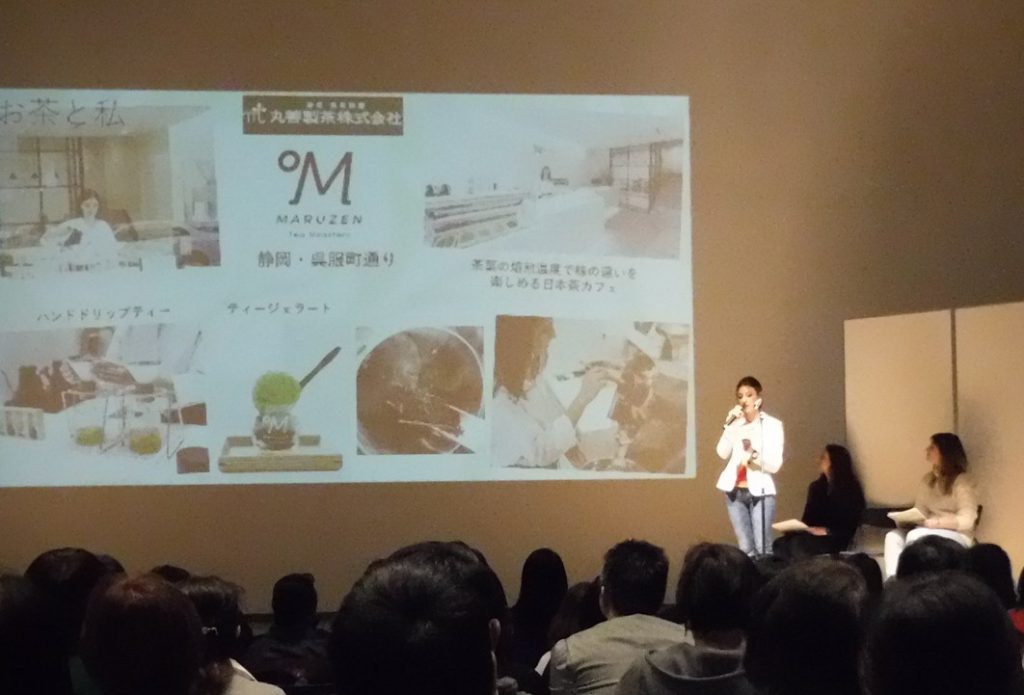
Marie explained she worked in Maruzen Tea Roastery for a year in 2017.
In the meeting, they explained the charms of Japanese teas and the philosophy commonly underlying French agriculture and tea production in tea estates in Shizuoka.
At first, Elodie explained some similarities between France and Shizuoka related to Japanese tea. She showed a slide of grape farms for wine as one of the similarities between rural areas in France and Shizuoka.
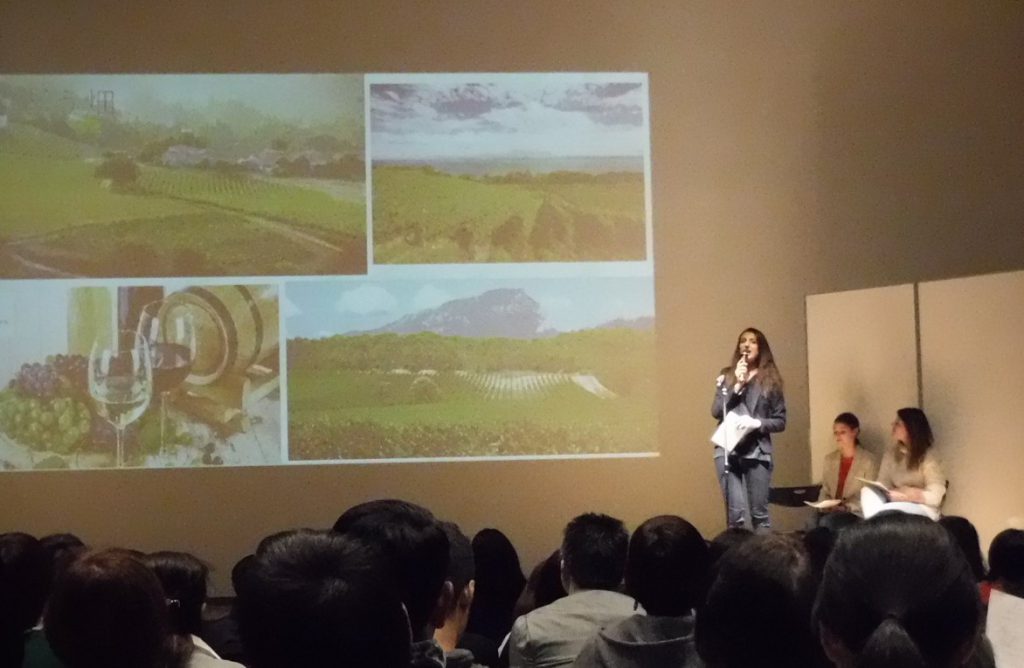
And then she told the mind of French people putting their significance on the local products. Their mind would be grown by the home veggie garden.
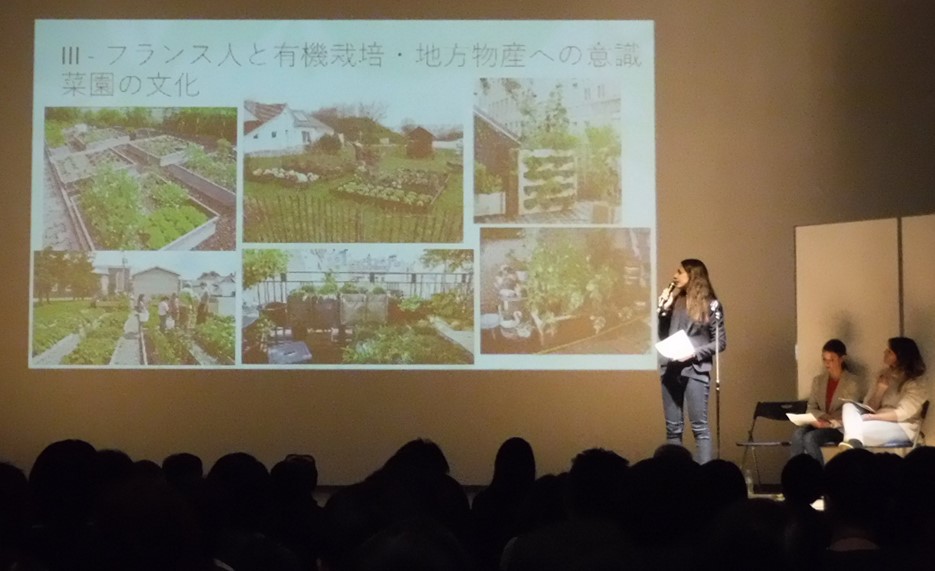
In addition, French preference of organic products could be derived from the culture of marche. In the marche, French people are concerned about “which farm the products were made in”.
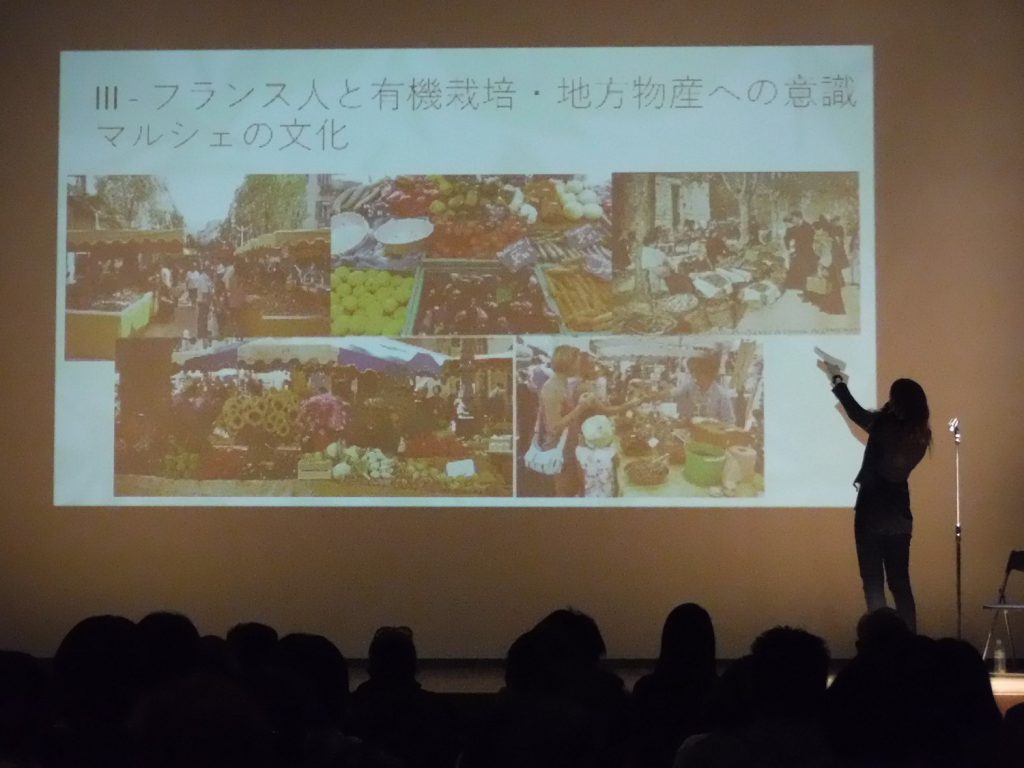
As for the organic tea production, the president of Tosaki Tenryo Tea Farm, Mr. Tosaki explained their organic tea farming in Honyama Tea Estate.
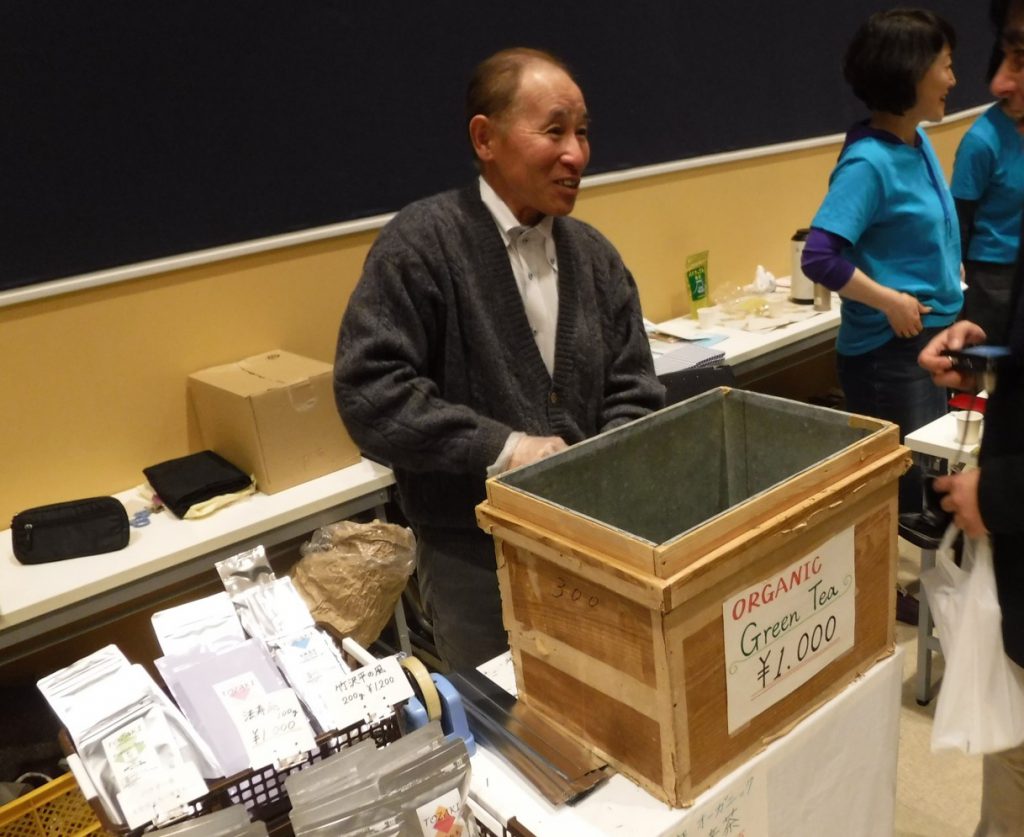
He explained Honyama Tea Estate had many “Tenryo” areas, which were the villages under the direct control of Tokugawa shogunate. And he speculates the “Tenryo” villages could be certified due to the excellent tea production. For example, Ashikubo, Umegashima, Uchimaki, Tawaramine and Kozeto, to which Tosaki Tenryo Tea Farm belongs to.
Toaki Tenryo Tea Farm has produced Japanese tea since approx. 1550. He explained tea plants had been originally produced farmed in organic manner. His organic farm has been certified as the Organic JAS, which is regarded as equivalent to organic certifications in other countries and regions, such as USA, Argentina, Australia, Canada Switzerland, New Zealand and member states of the EU according to MAFF.
In the relation to France, he introduced the documentary film “NOS ENFANTS, NOUS ACCUSERONT” (Eng. title “That Should Not Be: Our Children Will Accuse Us”, US title “Food Beware: The French Organic Revolution”), which shows the importance of organic farming.
Like the film, organic tea production gradually increases in Japan. This tendency is also indicated in the increasing seminars of organic tea farming by governments such as Shizuoka prefecture and MAFF.
Marie explained how to enjoy Japanese tea pairing with French foods such as cheese.
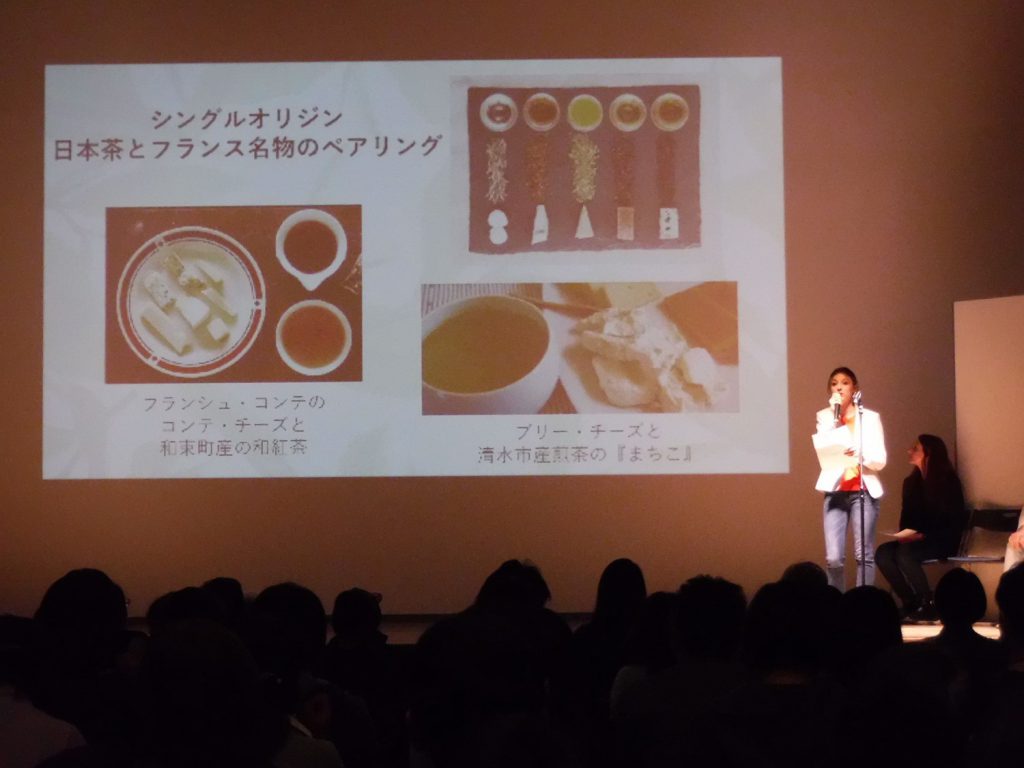
She recommended to enjoy the harmony of characteristic single-estate tea and each French foods. As indicated by the French Cheese Board, tea goes well with cheese and they have some commonalities such as seasonality and terroir.
She told Japanese green tea has gained its popularity due to the growing mind of French people to concern health and food additives. A series of health benefits, mainly derived from tea catechins, is a main charm for French people. Besides, she said she is fascinated with the diversity of tea due to the terroir and sophisticated skill of tea farmers. As a result, she experienced the internship training in Kyoto Obubu Tea Farms, and then worked in Maruzen Tea Roastery in 2017. Now she works in Kyoto Obubu Tea Farms.
Cindy explained the circumstance of Japanese tea in France. She said she misunderstood Japanese tea equals to Matcha. She learned Japanese foodstuffs such as Matcha and Yuzu citrus through her favorite cake making in France. After living in Japan, she know Matcha is one of Japanese teas and there are various types of Japanese tea, such as Sencha, Hojicha, Kamairicha (pan-fired tea) etc.. Now she thinks matcha could be perfect to breakfast and sports drinks.
Tea can express different flavors every time she steeps. She is fascinated with the expressiveness of tea, she said.
Now she works in Maruyama Tea Products Company in Kakegawa tea estate. In the company, she realized the genuine matcha made in Japan. She hopes the rich flavor of genuine matcha could delight people all over the world.
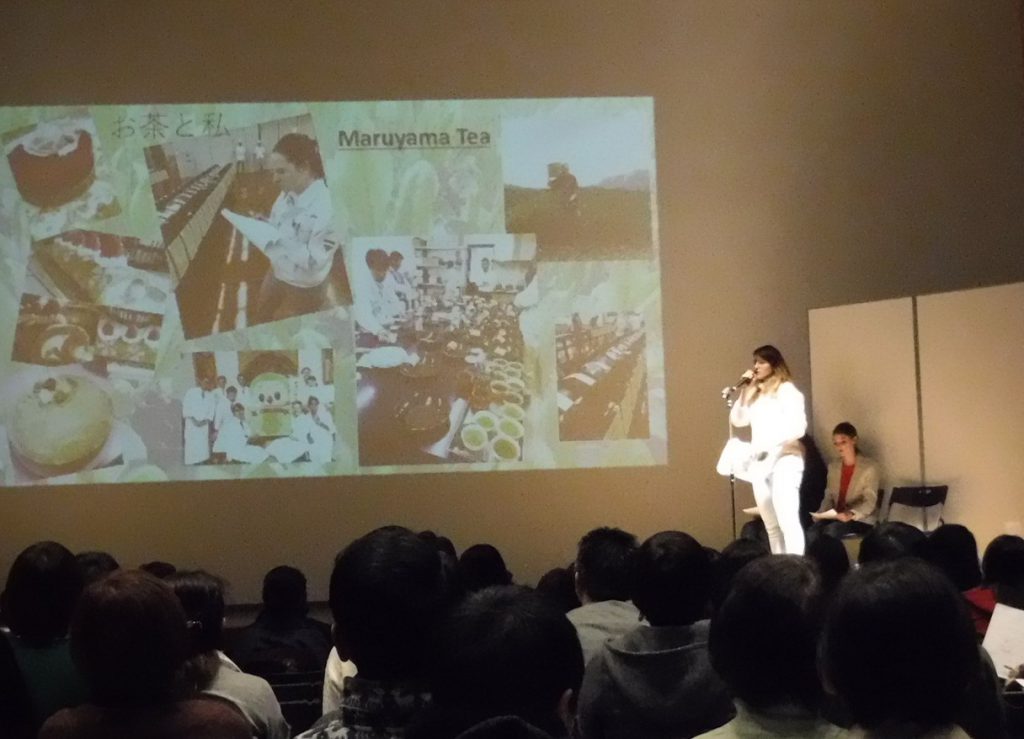 In the tea tasting time, the 3 French beauties served their favorite Japanese teas with emmental and beaufort cheeses produced in France. The beaufort cheese is produced in Cindy’s country, Savoie province in France. Cindy explained beaufort cheese especially paired well with deep-steamed Sencha.
In the tea tasting time, the 3 French beauties served their favorite Japanese teas with emmental and beaufort cheeses produced in France. The beaufort cheese is produced in Cindy’s country, Savoie province in France. Cindy explained beaufort cheese especially paired well with deep-steamed Sencha.
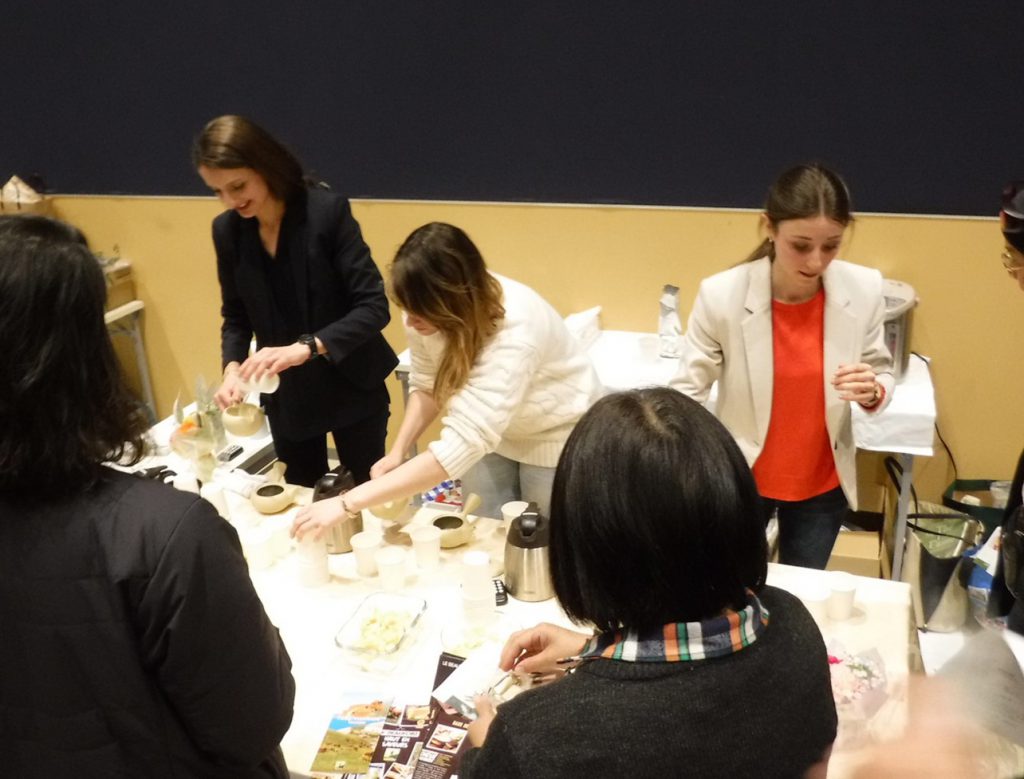
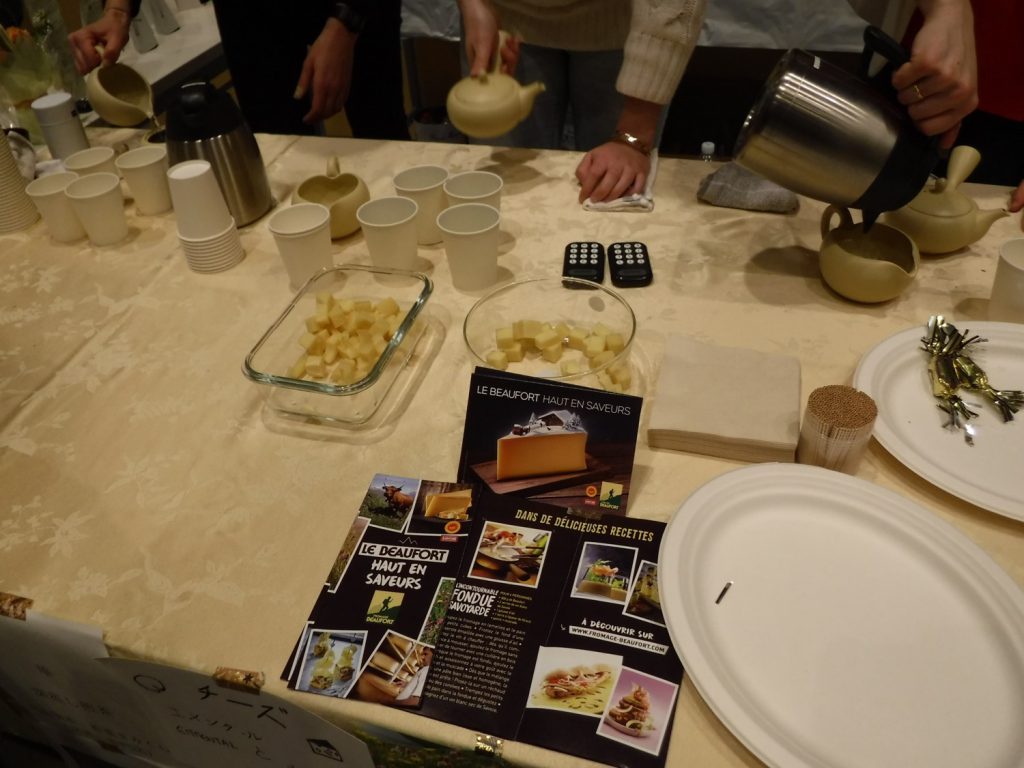
I felt the beaufort had more bodied taste and somehow unique smell. I think it could go well with deep-steamed Sencha blended with roasted beans and spices.
